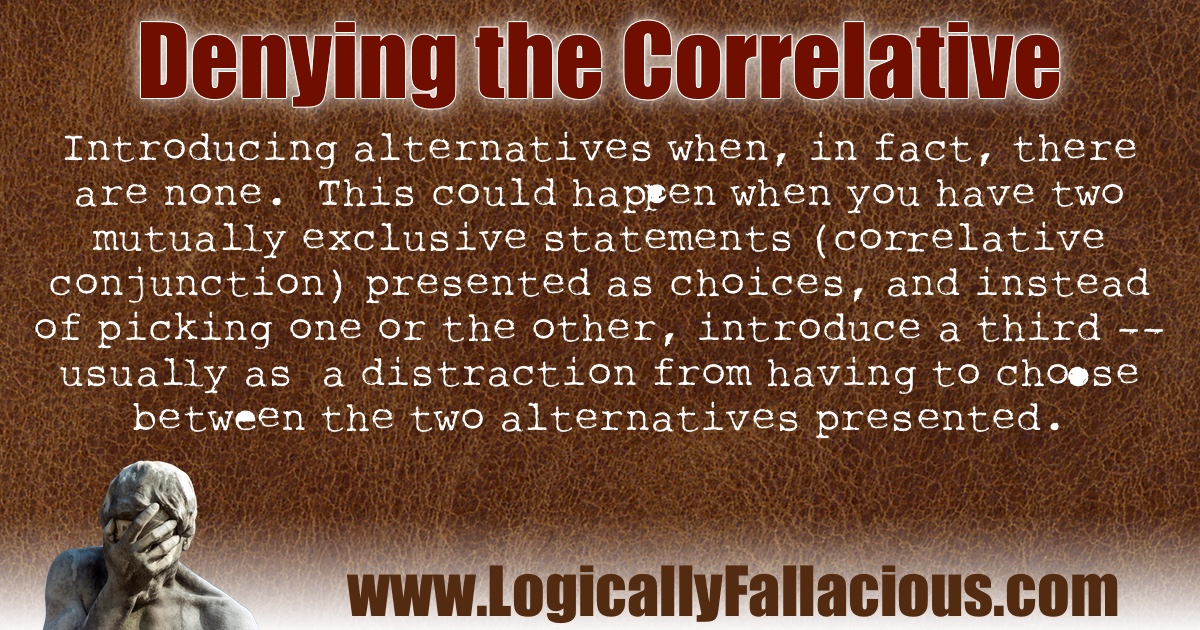(also known as: denying the correlative conjunction)
Description: Introducing alternatives when, in fact, there are none. This could happen when you have two mutually exclusive statements (correlative conjunction) presented as choices, and instead of picking one or the other, introduce a third -- usually as a distraction from having to choose between the two alternatives presented.
Logical Form:
Either X or not X.
Therefore, Y.
Example #1:
Rocco: Do ya have the five grand you owe me or not?
Paulie: I can get it.
Rocco: That means you don’t have it?
Paulie: I know someone who does.
Rocco: Read my lips: do you have my money or not?
Paulie: No.
(sound of a baseball bat breaking kneecaps)
Explanation: Rocco was asking a simple question, and out of personal safety, Paulie was committing the fallacy of denying the correlative by offering up another option to a choice that only had two. If Paulie were smarter, he could not have committed the fallacy and saved his kneecaps, by honesty and a little negotiation:
Rocco: Do ya have the five grand you owe me or not?
Paulie: No. I realize I did not hold up my end of the deal, so I will compensate you for that.
Rocco: What are you sayin’?
Paulie: I can have your $5000 by this time tomorrow, plus an extra $500 for making you have to wait an extra day.
Rocco: Deal. I’ll be back this time tomorrow.
(sound of heart dropping from throat)
Example #2:
Judge: So did you kill your landlord or not?
Kirk: I fought with him.
Explanation: Here is a classic case where a “yes” or “no” answer is expected, and the only acceptable answer to such a question, yet Kirk is deflecting the question by providing a third answer option, that leaves the original question unanswered.
Exception: When non-mutually exclusive choices are presented as mutually exclusive choices, the fallacy lies with the one presenting the choices (false dilemma ).
Tip: Don’t borrow money from anyone named "Rocco."

This a logical fallacy frequently used on the Internet. No academic sources could be found.